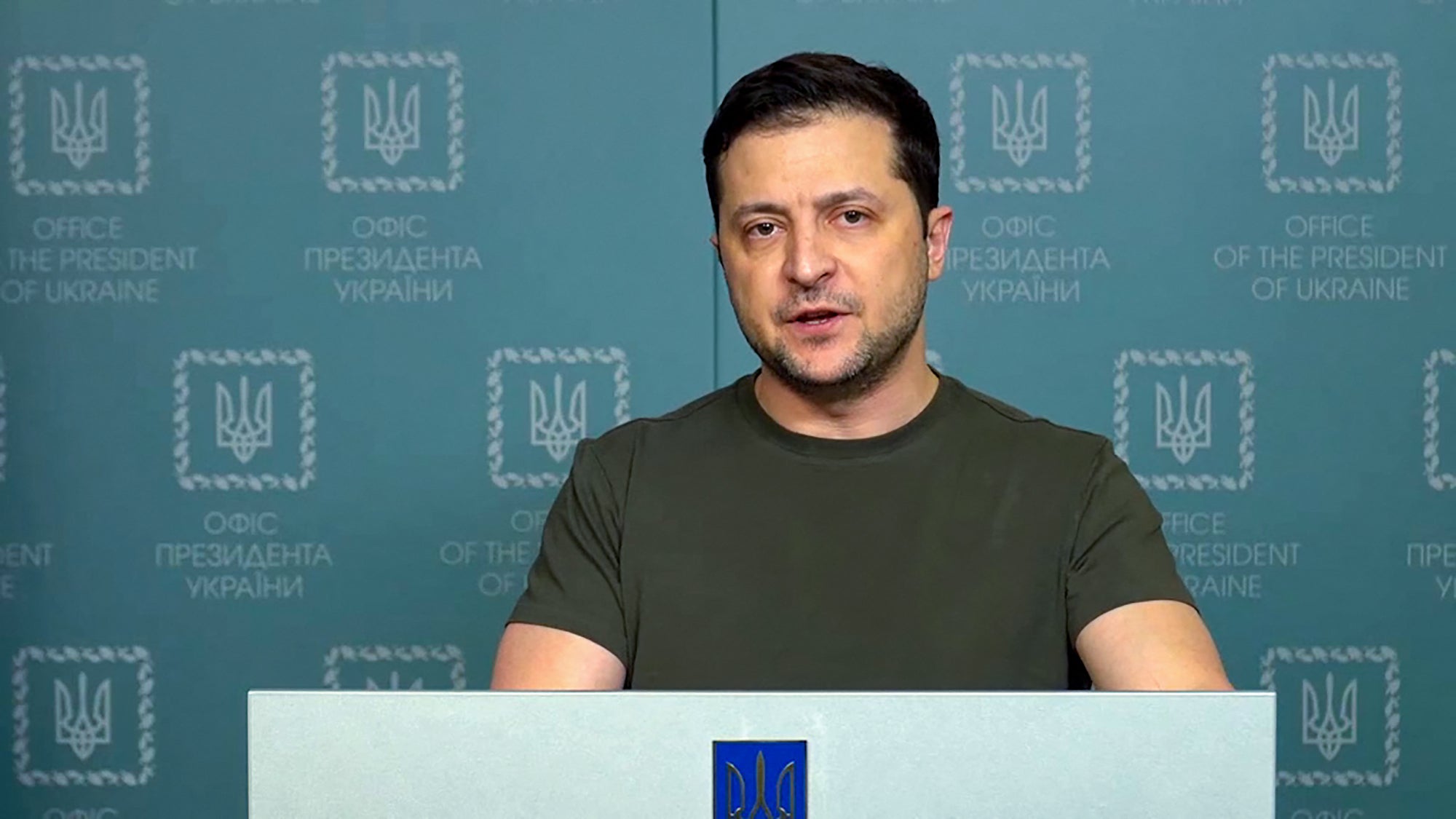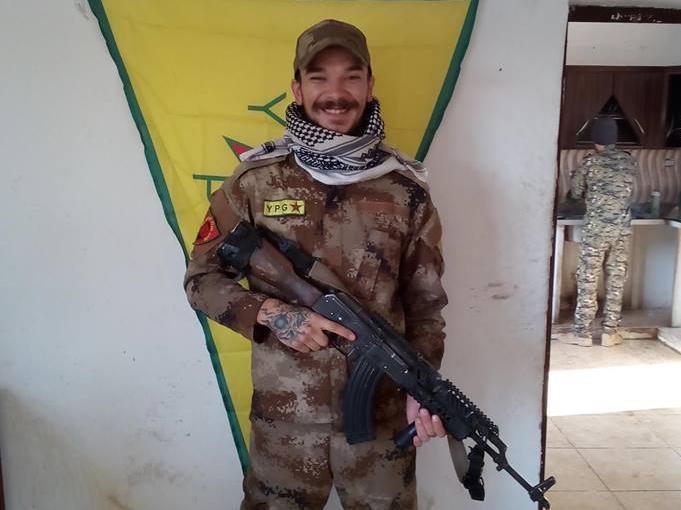Ukraine war: British volunteers who travel to fight Russia could violate terror laws but prosecutions unlikely
Foreign secretary Liz Truss says she would ‘absolutely’ support people responding to call for international fighters
Your support helps us to tell the story
From reproductive rights to climate change to Big Tech, The Independent is on the ground when the story is developing. Whether it's investigating the financials of Elon Musk's pro-Trump PAC or producing our latest documentary, 'The A Word', which shines a light on the American women fighting for reproductive rights, we know how important it is to parse out the facts from the messaging.
At such a critical moment in US history, we need reporters on the ground. Your donation allows us to keep sending journalists to speak to both sides of the story.
The Independent is trusted by Americans across the entire political spectrum. And unlike many other quality news outlets, we choose not to lock Americans out of our reporting and analysis with paywalls. We believe quality journalism should be available to everyone, paid for by those who can afford it.
Your support makes all the difference.Britons fighting against Russia alongside Ukrainian forces could fall under the UK’s definition of terrorism, a watchdog has said after the foreign secretary backed volunteers.
Liz Truss said she would “absolutely” support British nationals who travel to the warzone following an invitation by president Volodymyr Zelensky to international combatants.
A statement issued by Ukraine’s defence ministry on Sunday announced the formation of an international legion and said people could enlist through embassies in their home countries.
“Anyone who wants to join the defence of Ukraine, Europe and the world can come and fight side by side with the Ukrainians against the Russian war criminals,” it added.
Asked on the BBC's Sunday Morning programme if she would support UK citizens who chose to answer the call, Ms Truss said: “That is something people can make their own decisions about.
”The people of Ukraine are fighting for freedom and democracy, not just for Ukraine but for the whole of Europe.
“Absolutely, if people want to support that struggle I would support them in doing that.”
But fighting overseas has previously been prosecuted under terrorism laws, which saw charges against people who joined UK-backed Kurdish groups to defeat Isis.
The Terrorism Act 2000 defines terrorism as the use or threat of violence, to influence a government or the public, “for the purpose of advancing a political, religious, racial or ideological cause”.
Jonathan Hall QC, the Independent Reviewer of Terrorism Legislation, said fighting in Ukraine would be captured by the definition but prosecutions appear unlikely.
“Russia's aggression against the international legal order, and the importance of supporting Ukraine, makes any support for foreign fighters who want to travel to Ukraine at first glance attractive,” he told The Independent.
“Given the government's apparent support, prosecution of foreign fighters against Russia under terrorism legislation appears to be a non-starter even if the broad statutory definition of terrorism is satisfied in these cases.
“But there is always the possibility of less desirable cases at the edges - individuals who travel to Ukraine under false pretence either to support Russia or fight with an ideological group such as the [neo-Nazi] Azov battalion.”

Crown Prosecution Service (CPS) guidance states that people who travel from the UK overseas to participate in fighting, “may be caught by the provisions of section 1 of the Terrorism Act 2000”.
It says that individual circumstances, including the location, purpose and intention of the fighting, would be considered but concludes: “If individuals decide to travel overseas to take part in fighting, if not in accordance with a properly authorised UK government operation, then it is likely that the public interest would be in favour of prosecution.”
British authorities attempted a string of failed prosecutions for volunteers who fought against Isis alongside the Kurdish People’s Protection Units (YPG) in Syria.
Almost all terror charges were dropped before trial or ended in acquittals, and the cases sparked scrutiny over the use of terror laws against a group that was militarily backed by the UK.
Any charges relating to alleged terrorism offences committed overseas, or connected with the affairs of another country, can only be brought with the approval of the attorney general and director of public prosecutions.
Pippa Woodrow, a barrister who represented two of the anti-Isis volunteers charged with terror offences, said the enforcement of the laws was subject to “political whim”.
“It may come as a shock to many to know that the actions advocated by the foreign secretary have previously been treated as a terrorism by police and prosecutors,” she told The Independent.
“The legal uncertainty facing those motivated to take up arms in defence of the Ukrainian people is further evidence that our terror laws are over-broad, uncertain and that their deployment is subject to political whim.

“Such laws are anathema to the rule of law and to the same fundamental principles of democracy that are under attack in Ukraine.”
Mr Hall said there were some important differences between the prospect of British volunteers joining the Ukrainian armed forces, and those who fought Isis in Syria.
He said that in Syria, they were joining a non-state party - the YPG - to fight another non-state party - Isis - rather than a national military.
But his most recent report on terror laws in the UK said that the Syria cases had “raised definitional questions about whether individuals in their position should have been charged with terrorism offences”, which have never been answered by the authorities involved.
Mr Hall found that anti-Isis volunteers “appeared to command a measure of public understanding and support” but were still prosecuted as terrorists.
“Terrorism legislation may therefore have been used to prosecute people who would not ordinarily be considered to be terrorists,” he added.
“Where the cases were eventually discontinued (in all but one case), there was a lack of explanation for why this was being done.”
The Foreign Office has not responded to The Independent’s request for comment.




Join our commenting forum
Join thought-provoking conversations, follow other Independent readers and see their replies
Comments